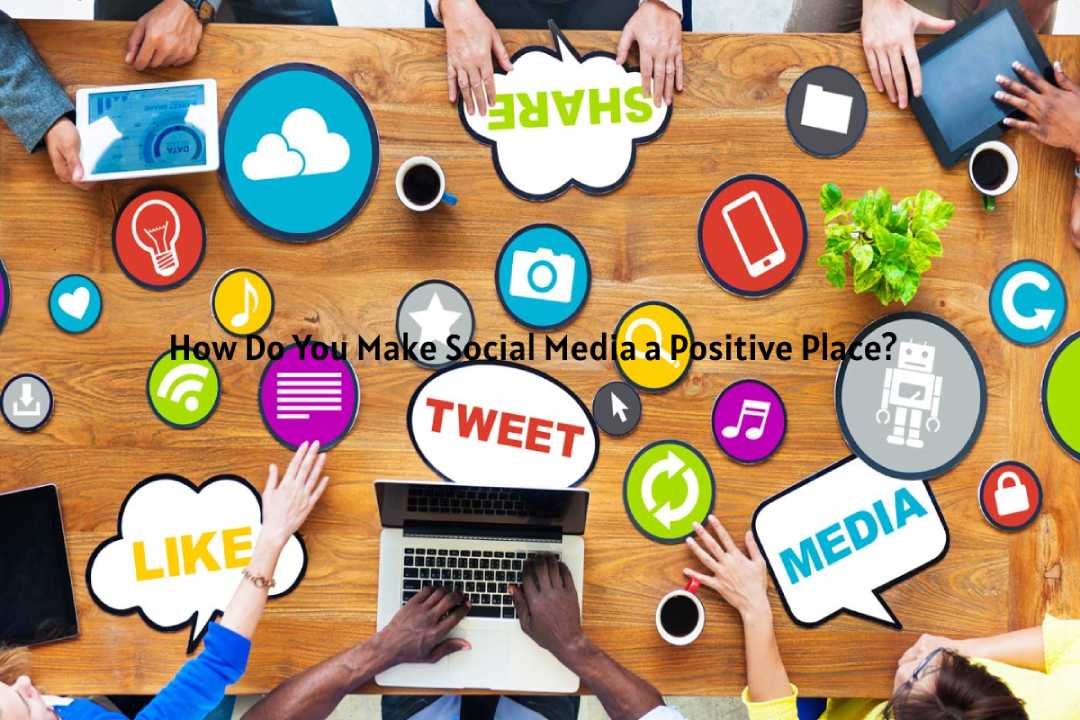Table of Contents
Introduction
Make Social Media a Positive Place? Imagine that at a meeting on the Zoom platform in April 2020, while browsing the news on social media, you will have headlines such as: “continuous rise in mortality numbers”, “covid-19 may cause long-term health effects”, or “health care systems are overwhelmed”. It’s enough to make you moodier, but you can’t stop browsing.
If you see this scenario as accurate, you are not alone. Research suggests that people search for information in times of uncertainty; it’s a natural coping mechanism.
But is the constant search for information on social media, sometimes called lousy news browsing, valid during a pandemic or at any time?
Does surfing bad news make people unhappy, or are sick people more likely to surf terrible news? How long do we have to spend browsing terrible news, so it’s a problem? What happens if we browse positive news rather than bad news, such as reading, for example, positive human responses to a global crisis?
What Studies Shows?
To find out, a study was conducted on hundreds of people, showing real-world content either on Twitter or youtube for two to four minutes.
Twitter feeds, and youtube videos included either public news about covid or positive information about events during the covid period. The mood of these participants was then examined using a questionnaire, and their attitude was compared to participants who did not interact with any content at all.
People who were shown public news about kuvid suffered a worse mood than people who were never offered anything. Meanwhile, people who were shown positive news stories about covid did not experience the same low mood, but they also did not get the positive push we expected in the spirit.
The Results to Make Social Media a Positive Place
These results suggest that spending at least two to four minutes browsing negative news about covid-19 can negatively affect our mood.
Although we have not seen an improvement in mood among participants who have been offered positive news stories with good works, this may be because the levels were still associated with David 19. In other research, positive news stories have associating with improved mood.
Ironically, news coverage of the search results came with headlines, such as: “the study found that spending only five minutes on social media is enough to make you miserable”. But, of course, it may itself be part of someone’s destructive content.
But we have found no evidence that the use of all social media makes people miserable. Instead, we discovered that browsing harmful content about covid via Twitter or youtube during the epidemic makes people sad.
So, what can we do to take care of ourselves and make our time on social media more enjoyable?
More Tips to Make Social Media Positive
One option is to delete social media accounts altogether. Figures show that nearly half of Facebook users in the UK and USA measured leaving the platform in 2020.
But how accurate is it to distance ourselves from stages that connect nearly half of the world’s population, especially when these platforms provide social interactions between people at a time when face-to-face interactions may be risky or impossible?
Since avoiding media may not be practical, here are other ways to make your social media experience more positive.
Keep in mind what you’re browsing on social media. For example, if you sign in to connect with other people, focus on personal news. And published photos instead of focusing on the latest headlines.
Find content that makes you happy to balance the latest news page in your account. These could be nice cat pictures, beautiful landscapes. Food videos or anything else. You can even follow social media accounts dedicated to sharing only happy and positive news.
Conclusion
Use social media to promote positivity and gentleness. Sharing the decent things that happen in your life can improve your style, and your positive mood can pass on to others. You may also want to praise others on social media. Although this may seem embarrassing. People will appreciate it more than you think.
Importantly, we do not suggest that you avoid all bad news and content. We need to know what is happening globally. However, we must keep in mind our mental health as well.
As the epidemic continues to change our lives, the research results highlight the importance of our awareness of the emotional effects of negative news. Still, some steps can mitigate these losses and make social media a happier place.

